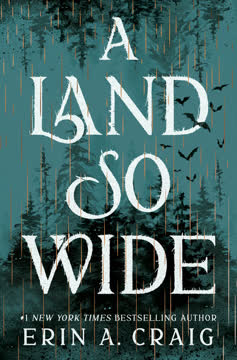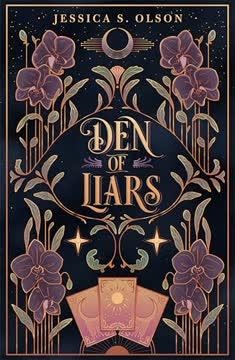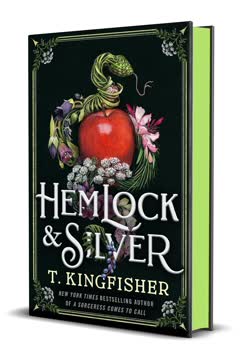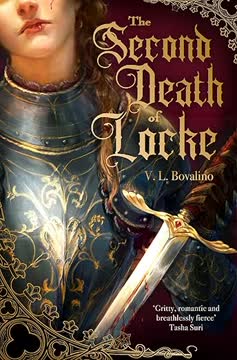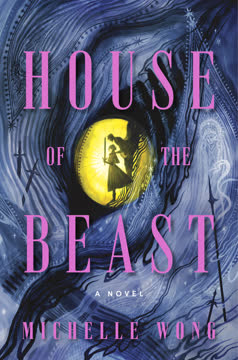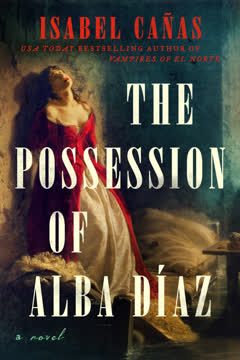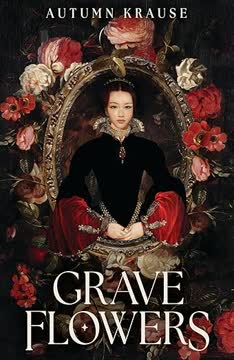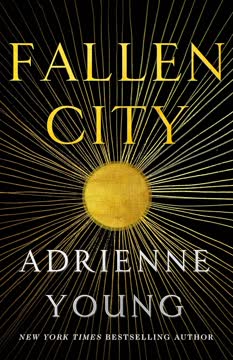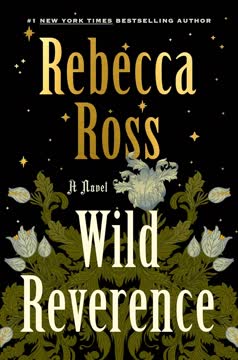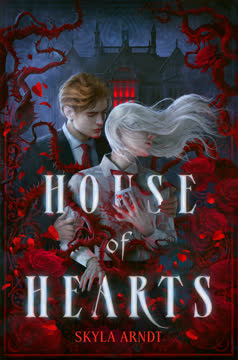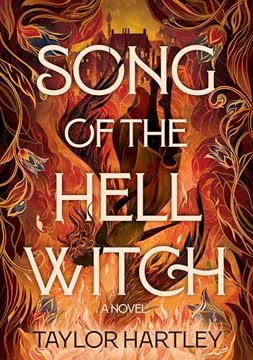Plot Summary
Prologue: The Cursed Voyage
Resolution Beaufort's obsession with a mysterious, powerful wood leads him to a new world, where he brings settlers, families, and dreams of empire. But the land is strange, the trees uncanny, and the journey ends in shipwreck and death. The survivors, haunted and desperate, find themselves trapped by ancient stones and a lurking, supernatural presence. The land resists their conquest, and the price of their ambition is blood and fear. The prologue sets the tone: this is a place where human greed meets the wild, and the wild always has the last word.
Blood and Boundaries
Generations later, Mistaken is a settlement defined by its boundaries—physical and supernatural. The Warding Stones, gifts from the enigmatic Benevolence, keep out the monstrous Bright-Eyeds but also trap the townsfolk. Greer Mackenzie, a mapmaker with uncanny hearing, and her best friend Louise, debate the rituals that keep them safe. Tensions simmer between tradition and skepticism, privilege and want. The woods are full of danger, and the price of safety is constant offerings and obedience. Greer's world is small, but her curiosity and longing for more are boundless.
The Warding Stones' Secret
The Stones' magic is both shield and prison. Greer's family, especially her father Hessel, is central to the town's power and secrets. The Hunt—a ritual where young women hide and are "caught" by suitors—looms, promising both hope and dread. Greer's love for Ellis Beaufort is complicated by class, history, and her father's ambitions. The town's peace is fragile, maintained by rituals, stories, and a truce with unseen forces. But cracks are appearing: the Stones' power is not absolute, and the past is full of lies.
Hunt, Heart, and Hunger
As the Hunt approaches, Greer and Ellis's love is tested by family, duty, and the town's expectations. The ritual is both a game and a sentence, binding couples for life. Greer's longing for freedom clashes with her obligations. The town's divisions—between rich and poor, believers and doubters—grow sharper. The woods, and what lies beyond, call to Greer. But the price of stepping outside the lines is steep, and the monsters in the dark are real.
The Night the Stones Moved
During a night of celebration, the Warding Stones inexplicably shift, dragging the Calloway family and their flock to a brutal death. The town reels in horror, realizing their boundaries are not fixed. Panic, blame, and suspicion spread. The Stewards scramble to restore order, moving up the Reaping—a ritual of offerings to the Benevolence. Greer is tasked with mapping the new borders, but the sense of security is gone. The Stones' movement is a warning: the truce is fragile, and the cost of angering the powers beyond is catastrophic.
Reaping and Reckoning
The town rushes to prepare for Reaping, sacrificing their best in hopes of appeasing the Benevolence. Greer, haunted by dreams and her mother's legacy, questions the rituals and the stories she's been told. The night brings a terrifying swarm—moths and bats—driven by supernatural forces. In the chaos, Greer finds a knife and a threatening note, hinting at betrayal within the town. The boundaries between myth and reality blur, and Greer's sense of self begins to unravel.
The Scream and the Swarm
Greer's uncanny hearing becomes a weapon when, cornered and desperate, she unleashes a scream that shatters the world around her. The sound throws back her pursuers, kills, and marks her as something other than human. The town's rituals and rules can no longer contain her. The attack by the swarm is revealed to be a distraction, orchestrated by the Bright-Eyeds. Greer's blood, her mother's legacy, and the truth of her nature begin to surface.
Sacrifice and Betrayal
Ellis is forced to become a sacrifice, venturing beyond the Stones to save the town. Greer, betrayed by her father and the Stewards, discovers the truth about her mother Ailie: she was a Bright-Eyed sovereign who gave up her power for love and a child. The truce with the Benevolence is a lie; the Stones' magic is a human creation, and the real monsters are both within and without. Greer's blood is the key to the town's fate, and her choices will determine who lives and who dies.
Into the Wilds
Greer escapes Mistaken, following Ellis's trail into the wilderness. The world beyond the Stones is vast, dangerous, and full of secrets. She is pursued by both human and supernatural enemies, and aided by a mysterious stranger, Finn, who is more than he seems. The wilds test Greer's strength, resolve, and identity. She discovers the remains of past sacrifices, the devastation wrought by the Bright-Eyeds, and the limits of her own humanity.
The Stranger in the Woods
Finn, a shape-shifting Bright-Eyed, becomes Greer's reluctant guide and protector. Their relationship is fraught with tension, attraction, and shared history. Finn reveals the truth about the Bright-Eyeds, the court, and Greer's mother's plan: Greer is meant to inherit the mantle of sovereign, to challenge Elowen, the usurper queen. The wilds are full of dangers—wolves, bears, and the Gathered—but the greatest threat is within. Greer's blood, her scream, and her choices will shape the fate of all.
The Truth of Blood
Greer learns to wield her power, but at a cost. She drinks Finn's blood to heal, awakening the Bright-Eyed within her. The line between human and monster blurs. The court of the Gathered is revealed to be larger, hungrier, and more divided than anyone knew. Greer must decide whether to embrace her mother's legacy, fight for the court, or destroy it. The past—Resolution's journals, Ailie's cloak, the true origin of the Stones—comes to light, forcing Greer to confront the lies that built Mistaken.
The Gathering at Sandry
At the abandoned Sandry mine, Greer, Finn, and Ellis face Elowen and the Gathered. The court is a monstrous legion, and Elowen is ruthless, willing to kill her own to maintain power. Greer dons her mother's cloak, absorbing its magic and transforming into something new. The battle is brutal, with shifting alliances, betrayals, and the unleashing of Greer's scream. Finn sacrifices himself to save Greer, and the court is buried beneath the mountain.
The Sovereign's Mantle
Greer emerges as the last of the Bright-Eyeds, changed forever by her mother's magic and Finn's blood. The cost of victory is high: Finn is dead, the court destroyed, and Greer can never return to Mistaken. She is both savior and monster, burdened by the knowledge of what she has done and what she has become. Ellis finds her, and together they face an uncertain future, free but forever marked by the wild.
The Battle Below
The final battle in the mines is a maelstrom of violence, magic, and sacrifice. Greer's scream brings down the mountain, burying the Gathered and sealing the threat forever. The cost is immense: Finn's death, the loss of Greer's last ties to her old life, and the knowledge that she is now the only one of her kind. The world is saved, but Greer is alone, changed, and exiled.
The Last Scream
Greer and Ellis, the last survivors, emerge into a world without boundaries. The Warding Stones are gone, the truce is broken, and Mistaken is free. The townspeople leave, venturing into the world beyond, carrying with them the scars and lessons of their past. Greer, the last Bright-Eyed, promises that her blood will die with her. The wild is wide, the future uncertain, but hope endures.
Aftermath and Awakening
In the aftermath, Greer and Ellis mourn their losses and reckon with what they have become. The world is open, the old boundaries gone. The story ends with a journey: the people of Mistaken set sail for new lands, and Greer and Ellis, arm in arm, face the horizon. The wild is no longer something to be feared, but a place of possibility. The past is buried, but its lessons remain.
The World Beyond Mistaken
The story closes with the people of Mistaken leaving their cursed home, the Warding Stones shattered, the Bright-Eyeds gone. Greer and Ellis, changed but together, look to the future. The wild is vast, the world is wide, and the story of Mistaken is both an ending and a beginning. The land cannot be claimed, but it can be lived in, loved, and respected. The lesson is clear: the wild endures, and so does hope.
Characters
Greer Mackenzie
Greer is the heart of the story: a mapmaker, a listener, and a woman caught between the human world of Mistaken and the supernatural legacy of her mother. Gifted with uncanny hearing and a restless spirit, Greer is both an outsider and a leader. Her journey is one of self-discovery, as she uncovers the truth about her blood, her power, and her place in the world. Greer's relationships—with Ellis, Finn, her father, and her mother's memory—are fraught with love, betrayal, and longing. Her arc is one of transformation: from a girl bound by fear and tradition to a sovereign who chooses her own fate, even at great cost.
Ellis Beaufort
Ellis is Greer's beloved, a baker's son marked by kindness, humor, and steadfastness. He is the anchor to Greer's wildness, offering her love and a vision of a simple, happy life. But Ellis is also a victim of the town's rituals and the machinations of the Stewards. Forced to become a sacrifice, he faces the wild with courage and despair. His relationship with Greer is tested by secrets, transformation, and the threat of the Bright-Eyeds. Ultimately, Ellis's love endures, but he must accept the changes in Greer and the world they inhabit.
Finn (Noah Finn)
Finn is a Bright-Eyed who straddles the line between monster and man. Once human, turned by Elowen, he becomes Greer's protector, mentor, and would-be consort. Finn's loyalty to Ailie, Greer's mother, and his growing affection for Greer drive him to acts of sacrifice and courage. He is both a source of knowledge and a symbol of the wild's allure and danger. Finn's arc is one of devotion and loss: he helps Greer claim her power, but pays with his life. His memory lingers as a reminder of what is gained and lost in the struggle between worlds.
Hessel Mackenzie
Hessel is Greer's father, a Steward of Mistaken, and a man defined by control, ambition, and fear. He loves his daughter but cannot accept her wildness or the truth of her blood. Hessel's actions—his manipulation of the Hunt, his betrayal of Ellis, his murder of Ailie—are driven by a desperate need to maintain order and legacy. He is both a villain and a victim, undone by the very secrets he tries to keep. His death at Elowen's hands is both punishment and release.
Ailie Mackenzie
Ailie is Greer's mother, a Bright-Eyed queen who gave up her power for love and a child. Her legacy is the story's engine: her blood, her cloak, her secrets. Ailie's choices—leaving the court, marrying Hessel, raising Greer—set the stage for the conflict between human and wild. She is both a figure of longing and a cautionary tale, her love and sacrifice shaping Greer's destiny. Even in death, Ailie's presence is felt, guiding and haunting her daughter.
Elowen
Elowen is the antagonist: a Bright-Eyed who seizes power after Ailie's departure. She is ruthless, cunning, and insatiable, willing to kill her own to maintain control. Elowen's court is a reflection of her: divided, hungry, and dangerous. Her obsession with Greer—both as rival and heir—drives the story's climax. Elowen is both a monster and a mirror, showing Greer what she could become. Her defeat is necessary, but the cost is high.
Louise Beaufort
Louise is Greer's childhood friend, a voice of reason and doubt. She challenges Greer's beliefs, questions the town's rituals, and struggles with her own burdens. Louise's loyalty is tested by poverty, family, and the events that unravel Mistaken. She is both a confidante and a foil, her skepticism highlighting Greer's faith and longing. Louise's survival is a testament to resilience and the power of friendship.
The Stewards (Ayaan, Ian, Michael, et al.)
The Stewards are the town's ruling council, keepers of the rituals, and enforcers of the truce. They are both protectors and jailers, maintaining order through stories, secrets, and sacrifice. Their actions—moving up the Reaping, manipulating the Hunt, hiding the truth of the Stones—are driven by fear and self-preservation. They are both necessary and culpable, their authority crumbling as the truth comes to light.
The Gathered (Bright-Eyed Court)
The Gathered are the court of Bright-Eyeds, shape-shifters who embody the wild's danger and allure. They are both individuals—tusked, winged, wolfish—and a collective force. Their hunger, violence, and division mirror the town's own struggles. The court's destruction is both a victory and a tragedy, marking the end of an era and the loss of a way of being.
The Benevolence (or the Lie Thereof)
The Benevolence are the supposed supernatural protectors of Mistaken, but are ultimately revealed to be a fiction—a story told to comfort and control. Their absence is a commentary on faith, power, and the human need for meaning. The real magic is human-made, and the true monsters are both within and without.
Plot Devices
Ritual and Repetition
The story is structured around rituals: the Hunt, Reaping, offerings, and the boundaries of the Warding Stones. These rituals create a sense of order and safety, but also trap the characters, both physically and psychologically. The repetition of these events—each Hunt, each Reaping—serves as a drumbeat, marking the passage of time and the escalation of tension. The breaking of ritual is both a source of horror and liberation.
Duality and Transformation
The central plot device is the blurring of boundaries: between human and Bright-Eyed, safety and danger, love and hunger. Characters transform—literally and metaphorically—through blood, magic, and choice. Greer's journey is one of becoming: she is both herself and her mother, both savior and monster. The story uses shape-shifting, blood-drinking, and the power of the scream as metaphors for change, agency, and the cost of power.
Secrets and Lies
The narrative is driven by secrets: the true origin of the Stones, the nature of the Benevolence, the history of Ailie and the Bright-Eyeds. Lies are told to protect, to control, and to survive. The revelation of these secrets is both a source of horror and catharsis. The story interrogates the stories we tell ourselves—about safety, about monsters, about love—and the consequences of believing them.
Foreshadowing and Echoes
The story is rich with foreshadowing: dreams, prologues, and repeated motifs (the scream, the cloak, the Hunt). Events in the past—Resolution's voyage, Ailie's choices, the founding of Mistaken—echo in the present, shaping the characters' fates. The structure is cyclical: beginnings and endings mirror each other, and the land itself resists closure.
The Power of Voice
Greer's hearing and her scream are central plot devices. Sound is both a gift and a weapon, a means of connection and a force of destruction. The scream is the story's ultimate act of agency: it breaks boundaries, destroys monsters, and remakes the world. The power of voice is both literal and symbolic, representing the struggle to be heard, to speak truth, and to claim one's place.
Analysis
A Land So Wide is a haunting, atmospheric exploration of the boundaries between civilization and wilderness, tradition and transformation, safety and sacrifice. At its core, the novel interrogates the stories we tell to make sense of fear: the rituals that bind us, the monsters we invent, and the truths we bury. Through Greer's journey—from mapmaker to sovereign, from human to something other—the book asks what it means to belong, to love, and to change. The wild is both threat and promise: it cannot be claimed, only respected. The story's lessons are timely and timeless: that safety bought with lies is fragile; that power, once claimed, demands responsibility; and that hope endures even in the face of loss. In a world where boundaries are always shifting, the only certainty is the need to listen—to the land, to each other, and to the wild within.
Last updated:
Review Summary
A Land So Wide receives mostly positive reviews for its atmospheric, gothic fantasy setting and compelling storytelling. Readers praise Craig's vivid descriptions and ability to create a creepy, folklore-inspired world. Many found the first half of the book stronger than the second, with some feeling the ending was rushed or predictable. Critics note that despite being marketed as adult fiction, the protagonist reads more like a young adult character. Overall, fans of Craig's previous works and those who enjoy dark fairy tales will likely appreciate this novel.
